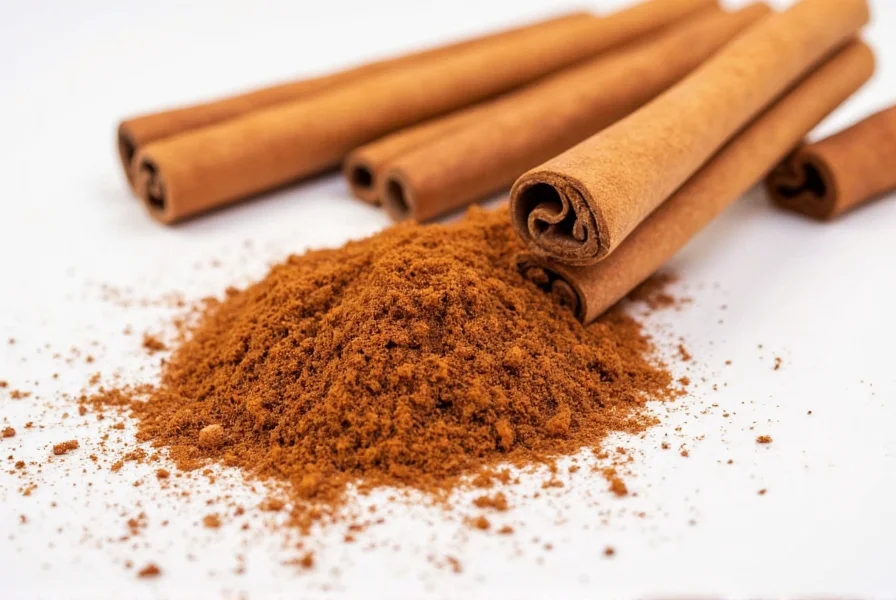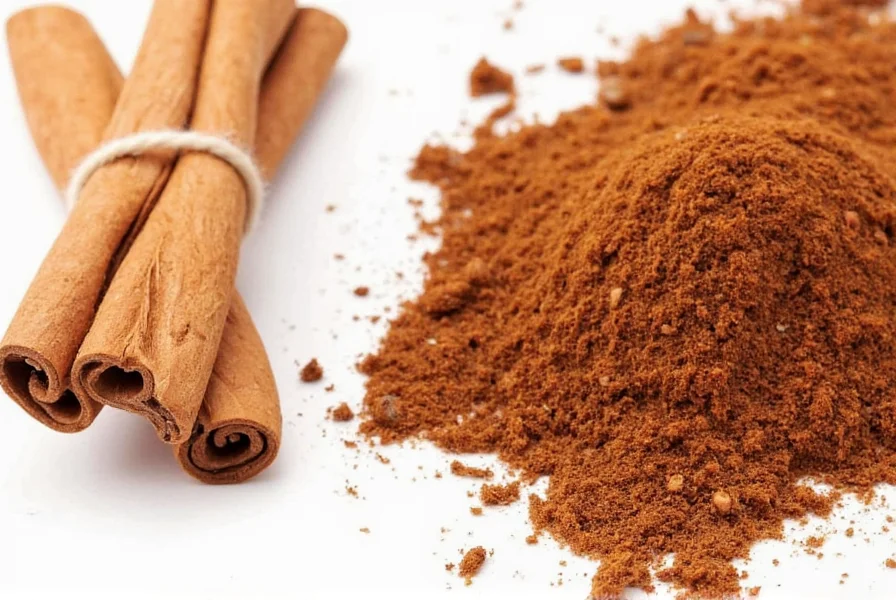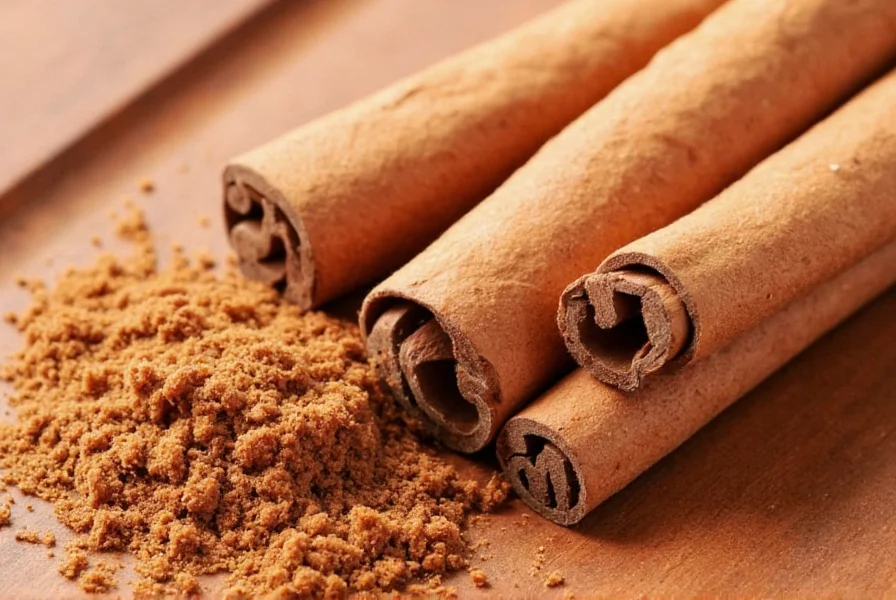Ceylon cinnamon (Cinnamomum verum), often called "true cinnamon," offers distinct health advantages over the more common Cassia variety. This delicate, tan-brown spice with multiple thin layers contains substantially less coumarin—a compound that can cause liver damage in high doses—making it a safer choice for regular consumption. Understanding the specific ceylon cinnamon health benefits requires examining the scientific evidence behind its therapeutic properties.
What Makes Ceylon Cinnamon Different
While both Ceylon and Cassia cinnamon come from the Cinnamomum tree family, they're botanically distinct species with different chemical profiles. Ceylon cinnamon originates from Sri Lanka and southern India, featuring a delicate, sweet flavor and multiple paper-thin layers that form a soft, hollow tube. Cassia, primarily from China and Indonesia, has a stronger, more pungent taste and consists of a single thick, hard layer.
| Characteristic | Ceylon Cinnamon | Cassia Cinnamon |
|---|---|---|
| Scientific Name | Cinnamomum verum | Cinnamomum cassia |
| Coumarin Content | 0.017g per kg (very low) | 2.1-6.6g per kg (high) |
| Flavor Profile | Mild, sweet, citrusy | Strong, spicy, harsh |
| Physical Structure | Multiple thin layers, soft | Single thick layer, hard |
Science-Backed Health Benefits of Ceylon Cinnamon
Blood Sugar Regulation and Diabetes Management
Multiple studies demonstrate Ceylon cinnamon's potential for improving insulin sensitivity and glucose metabolism. A 2015 review in Nutrition Research Reviews analyzed multiple clinical trials showing that cinnamon supplementation (1-6g daily) significantly reduced fasting blood glucose levels. The active compounds—including cinnamaldehyde, polyphenols, and proanthocyanidins—appear to mimic insulin and enhance glucose uptake by cells. For those researching is ceylon cinnamon good for diabetes, research suggests it may complement conventional diabetes management when used appropriately.

Superior Antioxidant Capacity
Ceylon cinnamon ranks among the most antioxidant-rich spices. Research published in Oxidative Medicine and Cellular Longevity found it contains 41 distinct phenolic compounds with potent free radical-scavenging abilities. These antioxidants combat oxidative stress, which contributes to chronic diseases and aging. The ceylon cinnamon antioxidant properties appear particularly effective against lipid peroxidation, protecting cell membranes from damage. This makes it valuable for those seeking natural ways to boost their body's defense systems.
Anti-Inflammatory Effects
Chronic inflammation underlies many modern diseases. Ceylon cinnamon contains powerful anti-inflammatory compounds that inhibit inflammatory pathways. A 2015 study in Food Chemistry demonstrated that Ceylon cinnamon extract significantly reduced markers of inflammation including TNF-α and IL-6 in cell studies. These effects contribute to its potential benefits for conditions like arthritis and other inflammatory disorders. Understanding the ceylon cinnamon anti-inflammatory benefits helps explain its traditional medicinal uses.
Heart Health Advantages
Research suggests Ceylon cinnamon may improve several cardiovascular risk factors. A 2013 clinical trial in Nutrition Journal found that participants consuming 120-360mg of cinnamon daily for 12 weeks experienced significant reductions in total cholesterol, LDL cholesterol, and triglycerides, while HDL (good) cholesterol increased. These ceylon cinnamon heart health benefits appear related to its ability to improve lipid profiles and reduce oxidative stress in blood vessels.
Neuroprotective Potential
Emerging research indicates Ceylon cinnamon may protect brain health. Compounds in cinnamon appear to inhibit tau protein aggregation and reduce oxidative stress in neural tissue—processes involved in Alzheimer's disease development. While human studies remain limited, laboratory research published in Journal of Alzheimer's Disease suggests cinnamon extract may help prevent the progression of neurodegenerative conditions. Those interested in ceylon cinnamon brain health benefits should note this promising but preliminary research.
Safety Considerations and Practical Usage
The most significant advantage of Ceylon over Cassia cinnamon is its dramatically lower coumarin content. While Cassia contains 2.1-6.6g of coumarin per kg, Ceylon contains only about 0.017g per kg. The European Food Safety Authority recommends a maximum daily coumarin intake of 0.1mg per kg of body weight. For a 70kg adult, this means:
- Ceylon cinnamon: Safe for regular consumption up to several grams daily
- Cassia cinnamon: Limited to occasional use (approximately 1 teaspoon max every few days)
For therapeutic benefits without risk, most research suggests consuming 0.5-3 grams (about 1/4 to 1 1/4 teaspoons) of Ceylon cinnamon daily. When considering how much ceylon cinnamon should I take daily, start with smaller amounts to assess tolerance. The spice works well added to oatmeal, smoothies, or tea, but avoid heating it above 175°F (80°C) to preserve its delicate compounds.
Limitations of Current Research
While promising, much of the research on Ceylon cinnamon's health benefits comes from laboratory studies, animal models, or small human trials. Larger, long-term human studies are needed to confirm many of these effects. Most clinical trials have used cinnamon supplements rather than culinary amounts, so the benefits of typical dietary consumption may be more modest. Those searching for ceylon cinnamon for weight loss should note that while it may support metabolic health, it's not a standalone weight loss solution.

Practical Recommendations
To maximize the ceylon cinnamon health benefits while minimizing risks:
- Choose authentic Ceylon cinnamon (look for "Cinnamomum verum" on labels)
- Store in an airtight container away from light and heat
- Use 1/4 to 1/2 teaspoon daily in foods or beverages
- Combine with black pepper to enhance absorption of active compounds
- Avoid taking with blood thinners without medical supervision
Unlike Cassia, Ceylon cinnamon can be safely consumed daily as part of a balanced diet. However, those with liver conditions or taking medications should consult healthcare providers before using cinnamon therapeutically. Understanding the differences in ceylon cinnamon vs cassia health benefits helps consumers make informed choices about which variety best suits their health goals.
Conclusion
Ceylon cinnamon offers a compelling combination of flavor and potential health benefits with a superior safety profile compared to Cassia. Its blood sugar regulation properties, potent antioxidant effects, and anti-inflammatory capabilities make it a valuable addition to a health-conscious diet. While not a miracle cure, incorporating authentic Ceylon cinnamon into your daily routine provides measurable health advantages without the coumarin-related risks of more common cinnamon varieties. As research continues to evolve, this "true cinnamon" remains one of nature's most promising functional spices for supporting overall wellness through evidence-based mechanisms.











 浙公网安备
33010002000092号
浙公网安备
33010002000092号 浙B2-20120091-4
浙B2-20120091-4